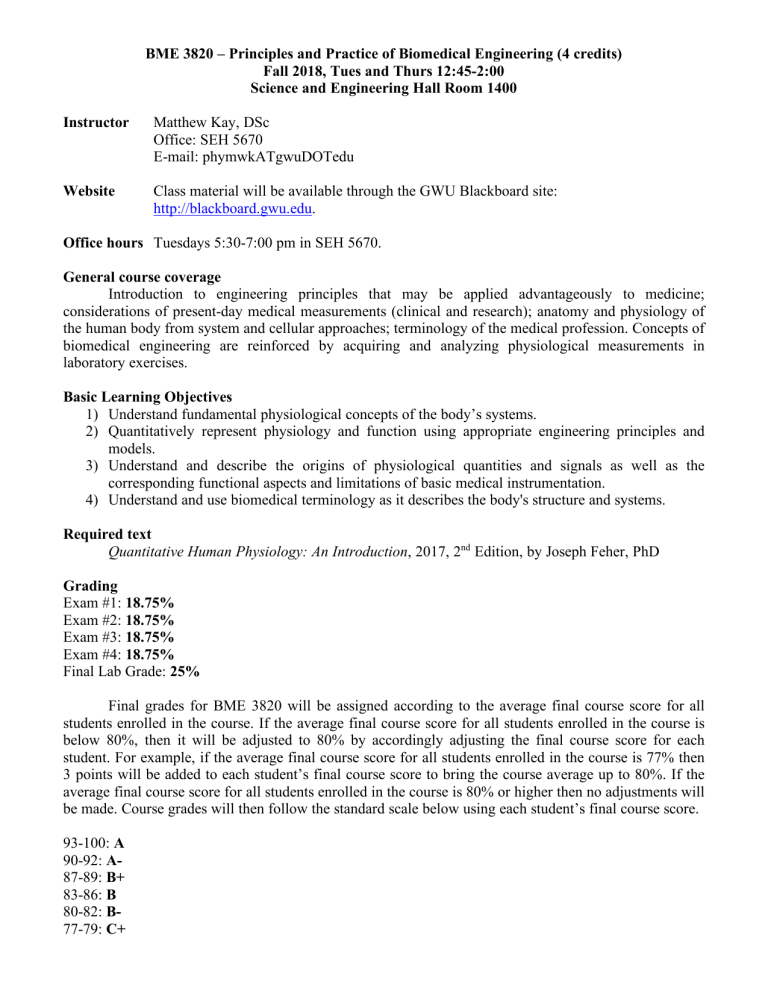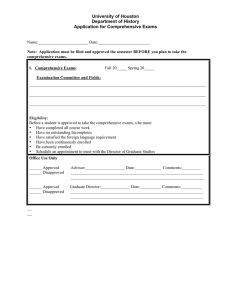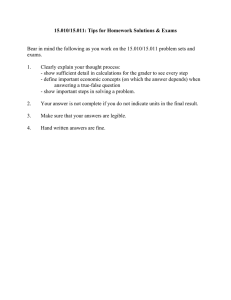
BME 3820 – Principles and Practice of Biomedical Engineering (4 credits) Fall 2018, Tues and Thurs 12:45-2:00 Science and Engineering Hall Room 1400 Instructor Matthew Kay, DSc Office: SEH 5670 E-mail: phymwkATgwuDOTedu Website Class material will be available through the GWU Blackboard site: http://blackboard.gwu.edu. Office hours Tuesdays 5:30-7:00 pm in SEH 5670. General course coverage Introduction to engineering principles that may be applied advantageously to medicine; considerations of present-day medical measurements (clinical and research); anatomy and physiology of the human body from system and cellular approaches; terminology of the medical profession. Concepts of biomedical engineering are reinforced by acquiring and analyzing physiological measurements in laboratory exercises. Basic Learning Objectives 1) Understand fundamental physiological concepts of the body’s systems. 2) Quantitatively represent physiology and function using appropriate engineering principles and models. 3) Understand and describe the origins of physiological quantities and signals as well as the corresponding functional aspects and limitations of basic medical instrumentation. 4) Understand and use biomedical terminology as it describes the body's structure and systems. Required text Quantitative Human Physiology: An Introduction, 2017, 2nd Edition, by Joseph Feher, PhD Grading Exam #1: 18.75% Exam #2: 18.75% Exam #3: 18.75% Exam #4: 18.75% Final Lab Grade: 25% Final grades for BME 3820 will be assigned according to the average final course score for all students enrolled in the course. If the average final course score for all students enrolled in the course is below 80%, then it will be adjusted to 80% by accordingly adjusting the final course score for each student. For example, if the average final course score for all students enrolled in the course is 77% then 3 points will be added to each student’s final course score to bring the course average up to 80%. If the average final course score for all students enrolled in the course is 80% or higher then no adjustments will be made. Course grades will then follow the standard scale below using each student’s final course score. 93-100: A 90-92: A87-89: B+ 83-86: B 80-82: B77-79: C+ 73-76: C 70-72: C67-69: D+ 63-66: D 60-62: D59 or below: F Homework and Exams Homework problems will be assigned but will not be graded. Some, but not all, homework problems might be discussed during classroom lectures. Students are encouraged to work together to solve the homework problems. A student’s likelihood of success on the exams will depend upon whether or not they have solved all the homework problems. Exams will cover information presented during class lectures, in the homework, and in the required textbook readings. You may not work together on the exams. Exam Policy No makeup exams. Makeup exams will only be allowed in very extreme circumstances and such situations MUST be discussed with Prof Kay during office hours. GWU Final Exam Policy University policy regarding final exam conflicts states that one final exam may be rescheduled if a student has three or more final exams scheduled on the same day. In order to reschedule an exam, a make-up exam must be scheduled no later than three weeks prior to the last day of classes. Whenever possible, the make-up exam should take place during the final exam period. The rescheduling must be achieved in consultation with all instructors involved, and whenever possible the student should select which exam to reschedule. Learning is the student’s responsibility Most of the information you will need to master the material in this class will be provided during class lectures. However, not all the information you will need will be presented by the instructor. When you encounter this situation, I encourage you to study the textbook and discuss the material with your fellow students as a way to supplement the information presented during the lectures. Professor Kay’s Teaching Objective My primary goal in teaching is to enable students to navigate the learning process. I believe this can be accomplished by encouraging students to think rather than memorize, encouraging students to ask questions, and instilling in them a desire to take personal responsibility for their own learning. A student who has mastered the learning process is able to develop problem solving strategies by thinking critically and creatively. This is an important component of biomedical engineering education, where concepts learned from multiple disciplines are essential to many engineering solutions of medical problems. Academic Integrity Any submitted work should conform to The George Washington University Code of Academic Integrity. Violation of academic integrity is defined as cheating of any kind, including misrepresenting one's own work, taking credit for the work of others without crediting them and without appropriate authorization, and the fabrication of information. Students who violate academic integrity will be promptly reported to the GWU Office of Academic Integrity. Disability Support Services Any student who feels s/he may need an accommodation based on the impact of a disability should contact me privately to discuss specific needs. Please contact the Office of Disability Support Services at 202-994-8250 in Rome Hall, Suite 102, to establish eligibility and to coordinate reasonable accommodations.

